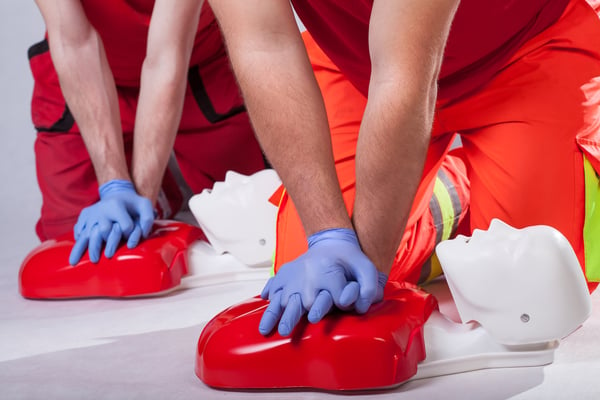
Across the nation, countless individuals participate in American Heart Association (AHA) trainings each year, and many of these invaluable courses are readily available at the Portland Community College’s Institute for Health Professionals. These cardiology-focused trainings not only equip healthcare professionals but also individuals in non-healthcare settings with the essential skills needed to support or save lives during cardiac emergencies. As the premier provider of such trainings in the United States, the AHA offers evidence-based strategies crucial in a cardiac event.
The significance of these courses is underscored by their mandatory nature in the healthcare field and often in other professions. Whether you aspire to be a nursing assistant, physician, or advanced practitioner, passing these trainings and earning AHA certifications can be the stepping stone to initiating or advancing your healthcare career.
American Heart Association Courses
The AHA offers a diverse range of courses that impart participants with vital skills. By enrolling in one or more of these courses, you can not only fulfill job requirements but also contribute to the well-being of others. Let's explore some of these courses:
Basic Life Support (BLS) Provider Courses
Designed for healthcare providers, the BLS Healthcare Provider Course is a prerequisite for most medical practices. Its exclusive focus on healthcare providers ensures that participants are equipped to utilize medical equipment typically unfamiliar to non-medical professionals, such as the Bag Valve Mask (BVM) and Airway Adjuncts. BLS also emphasizes a team-based approach to optimize effective team dynamics, integrating both initial and advanced-level care providers.
In BLS courses, you will acquire critical skills, including:
- Cardiopulmonary resuscitation (CPR)
- Relief of choking (Heimlich maneuver or other methods)
- Operation of an automated external defibrillator (AED)
- Recognition of signs of a life-threatening emergency
These courses hold particular importance for home health aides, certified nursing assistants, and other caregivers.
Advanced Cardiac Life Support (ACLS) Courses
Building upon the foundation of BLS training, ACLS courses furnish you with advanced skills necessary to handle life-threatening cardiac emergencies in adults. Upon completion of this course, you will be proficient in:
- Recognizing signs of cardiac arrest
- Initiating cardiac arrest management through CPR or other appropriate means
- Identifying signs of respiratory problems
- Providing post-cardiac arrest support
- Understanding the signs of heart attack and stroke
- Initiating the management of heart attack or stroke
- Communicating effectively with other healthcare professionals involved in resuscitation
This knowledge equips you to manage care until additional emergency support arrives or the patient can reach a hospital for further treatment.
Pediatric Advanced Life Support (PALS) / Pediatric Emergency Assessment, Recognition, and Stabilization (PEARS) Courses
These courses are tailored to address the assessment and treatment of pediatric cardiac emergencies, which differ significantly from those in adults. PALS emphasizes prevention, early recognition, and treatment for respiratory and shock emergencies in children, along with the management of cardiac instability, arrhythmias, and cardiac arrest. PEARS, on the other hand, focuses on recognizing emergencies and securing additional assistance, emphasizing initial treatment for respiratory and shock emergencies and cardiac arrest management.
Upon completing these courses, you will be competent in:
- Administering CPR to infants and children of varying age groups
- Utilizing and interpreting an electrocardiogram (ECG)
- Clearing and managing airways in children
- Assessing and recognizing cardiac emergencies
- Managing cardiac emergencies until additional support arrives
These courses are particularly beneficial for healthcare providers primarily working with children, though they can also prove valuable for medics or nurses dealing with a diverse age range of patients.
Heartsaver Courses
Heartsaver courses are tailored for adults without medical training who should still be prepared to assist during emergencies. These courses teach crucial skills, including:
- CPR for adults, children, and infants
- AED usage
- Recognition of injuries, cardiac arrest, heart attack, stroke, or other emergencies
- First aid for injuries or medical emergencies
- Prompt and appropriate responses to emergencies until professional help arrives
Heartsaver courses are especially popular among caregivers who may lack medical training or those in the process of acquiring such knowledge.
A Lifesaving Investment
Whether these courses are mandatory for your current job or not, they provide you with life-saving skills and open doors to new career opportunities. Discover the American Heart Association course that aligns with your job requirements, career aspirations, or even your daily life at Portland Community College. Invest in yourself and the well-being of others by embarking on this journey of cardiac expertise and preparedness.

